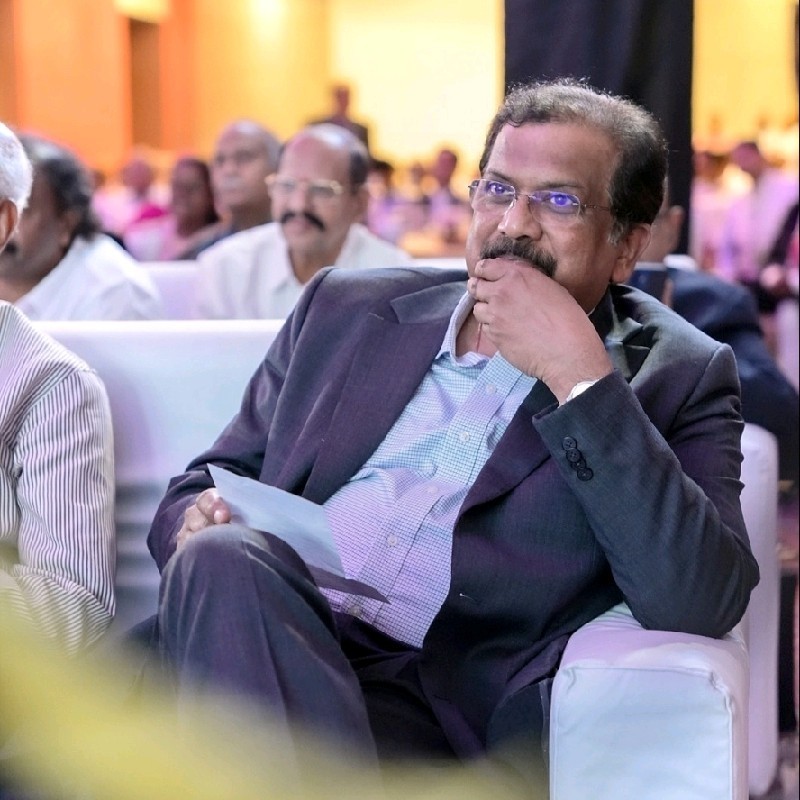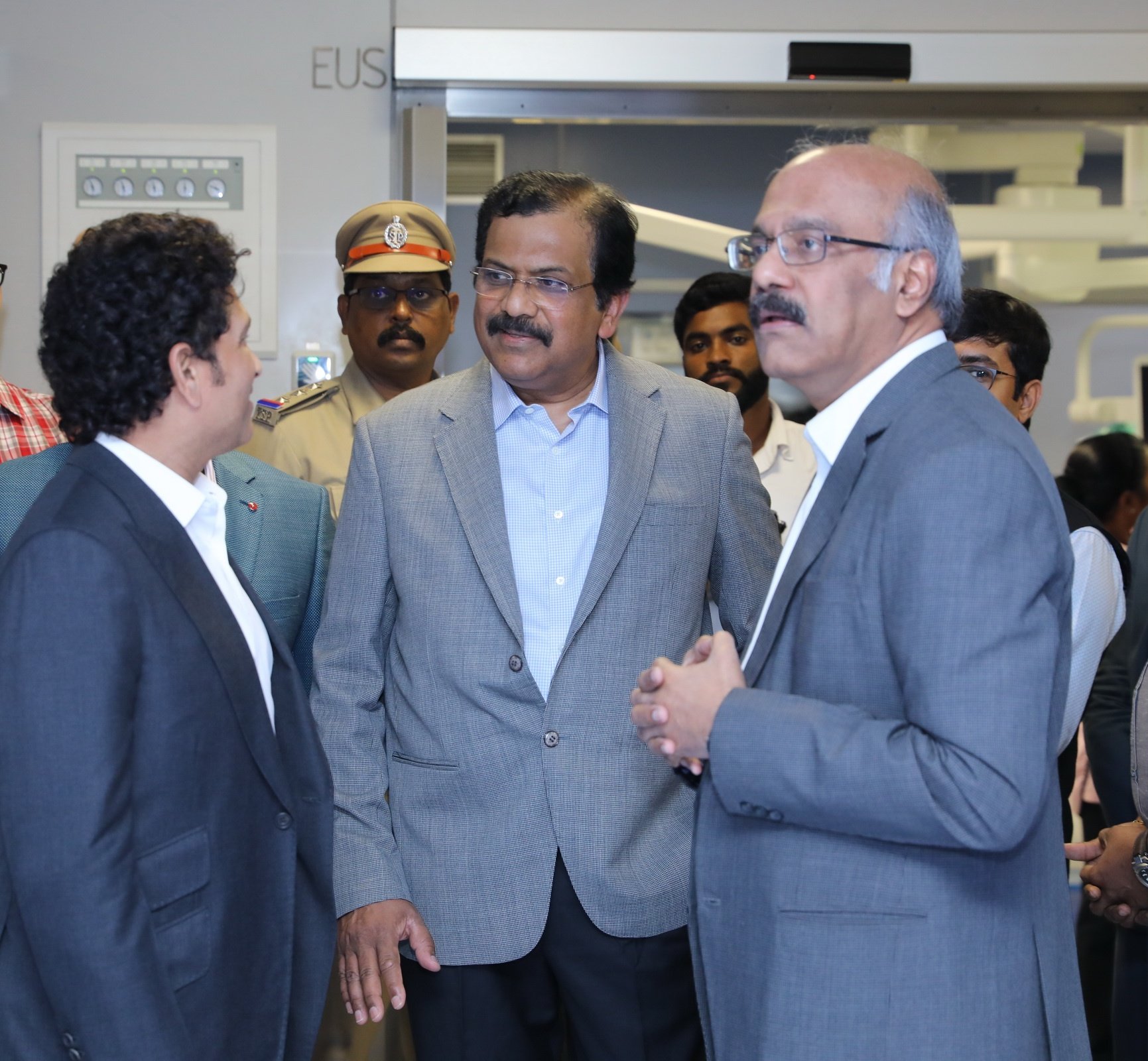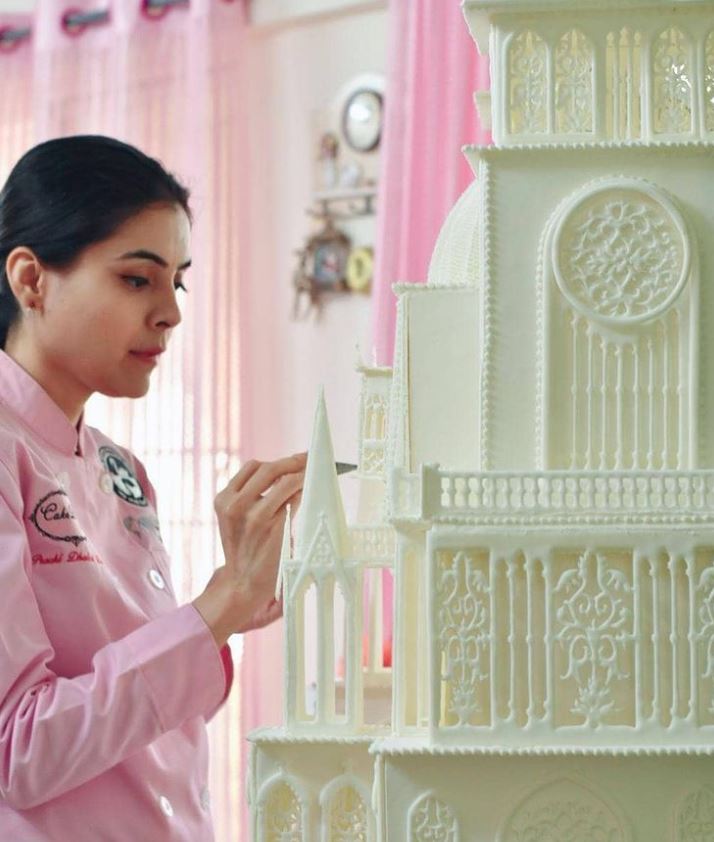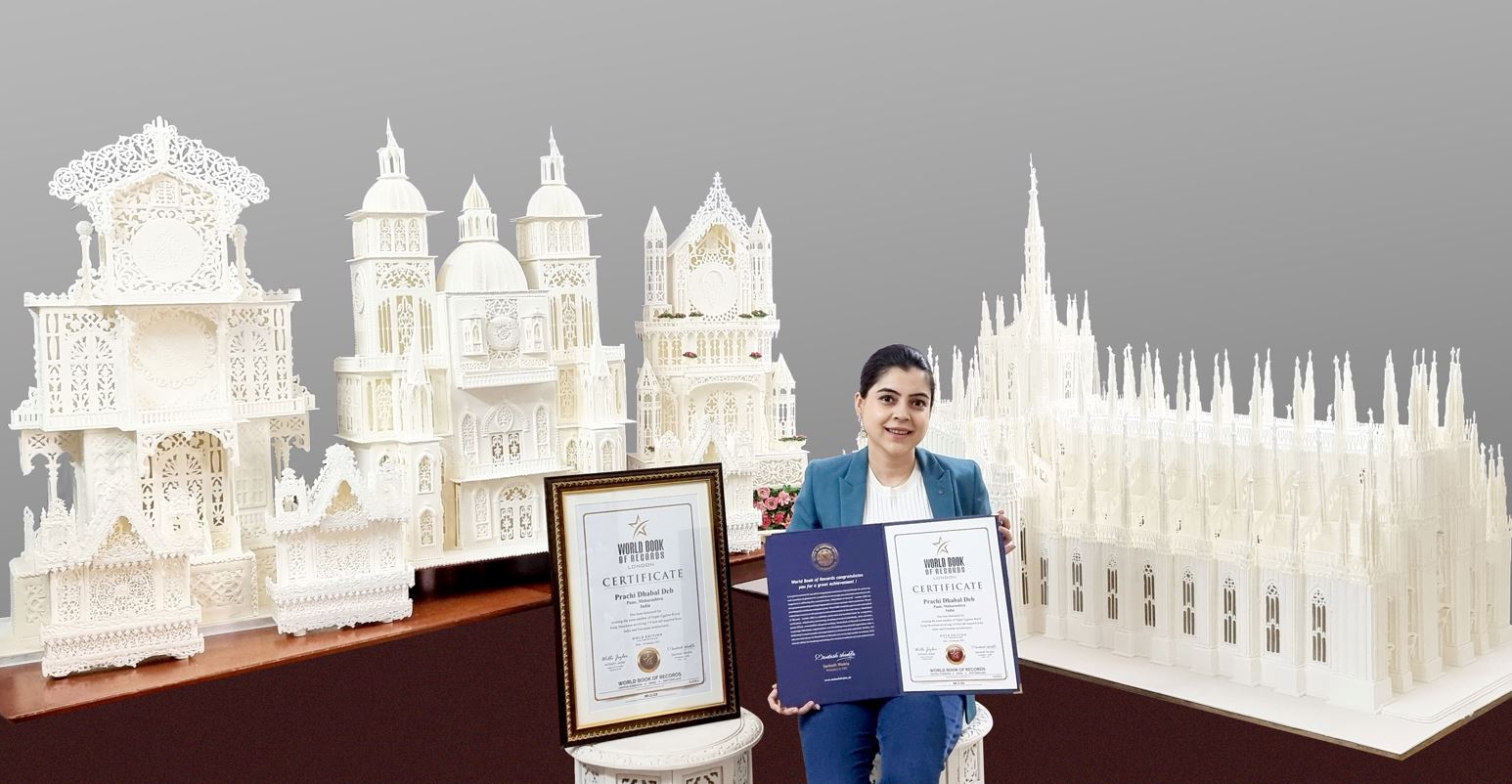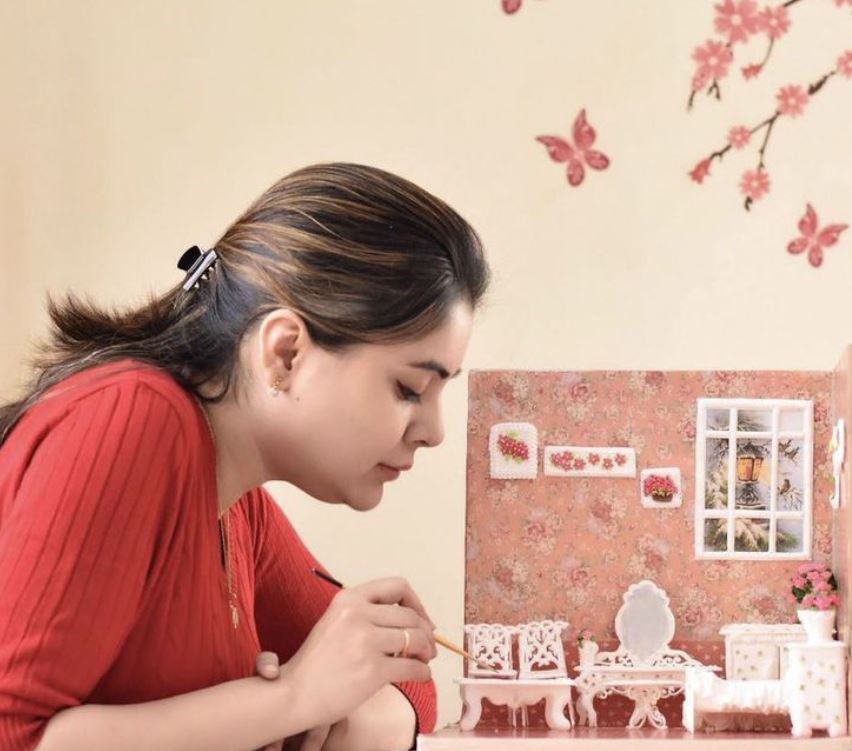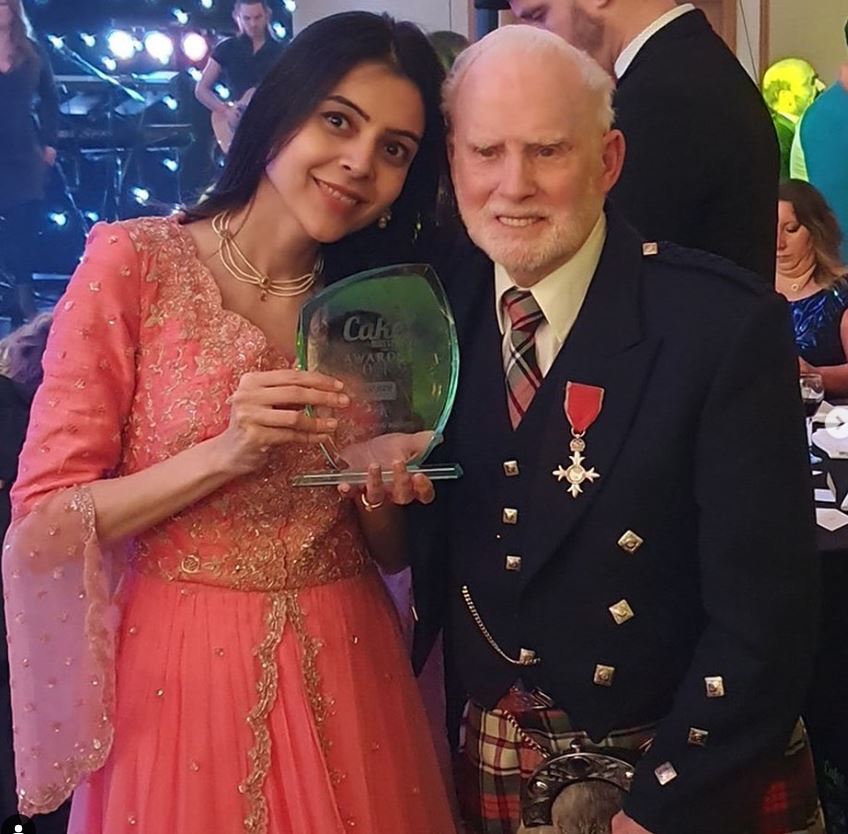(July 4, 2022) Leena Nair’s 30-year career has been dotted with many firsts. In 2021, she made headlines around the world when she was appointed the Global CEO of French ultra-luxury lifestyle brand Chanel, the first woman of colour in the post. The appointment came as a surprise to many, for Nair had had no exposure to the fashion industry whatsoever.
Her move to Chanel marked the culmination of her three-decades-long association with Hindustan Unilever, where she had become the company’s “youngest ever, first female, first Asian” chief human-resources officer in 2016. Global Indian turns its spotlight on the business diva who was named by Queen Elizabeth II as one of the most accomplished Indian Business Leaders in the UK, a title she cherishes.
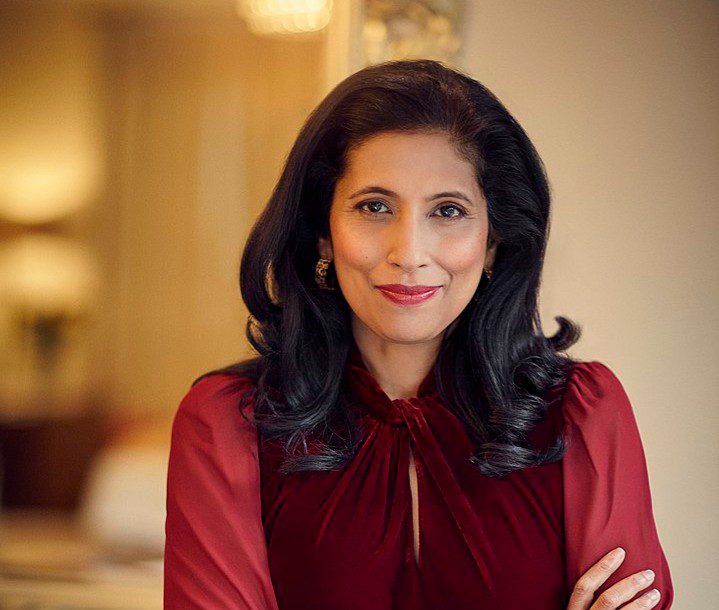
Leena Nair, Global CEO, Chanel
The Kolhapur connection
From heading a global fashion brand with no prior experiences, to going where few women dared at her time in HUL and surviving the 26/11 terror attack at the Taj Hotel in Mumbai, Nair’s life is the stuff of legend.
Even so, she remains a Kolhapuri at heart, “right from the food I eat to everything else,” the business diva said, addressing students in her hometown’s Shanti Niketan school. Occupying pride of place in her CV is her dancing talents – she’s the ‘best Bollywood dancer in London,’ Nair has mentioned there.
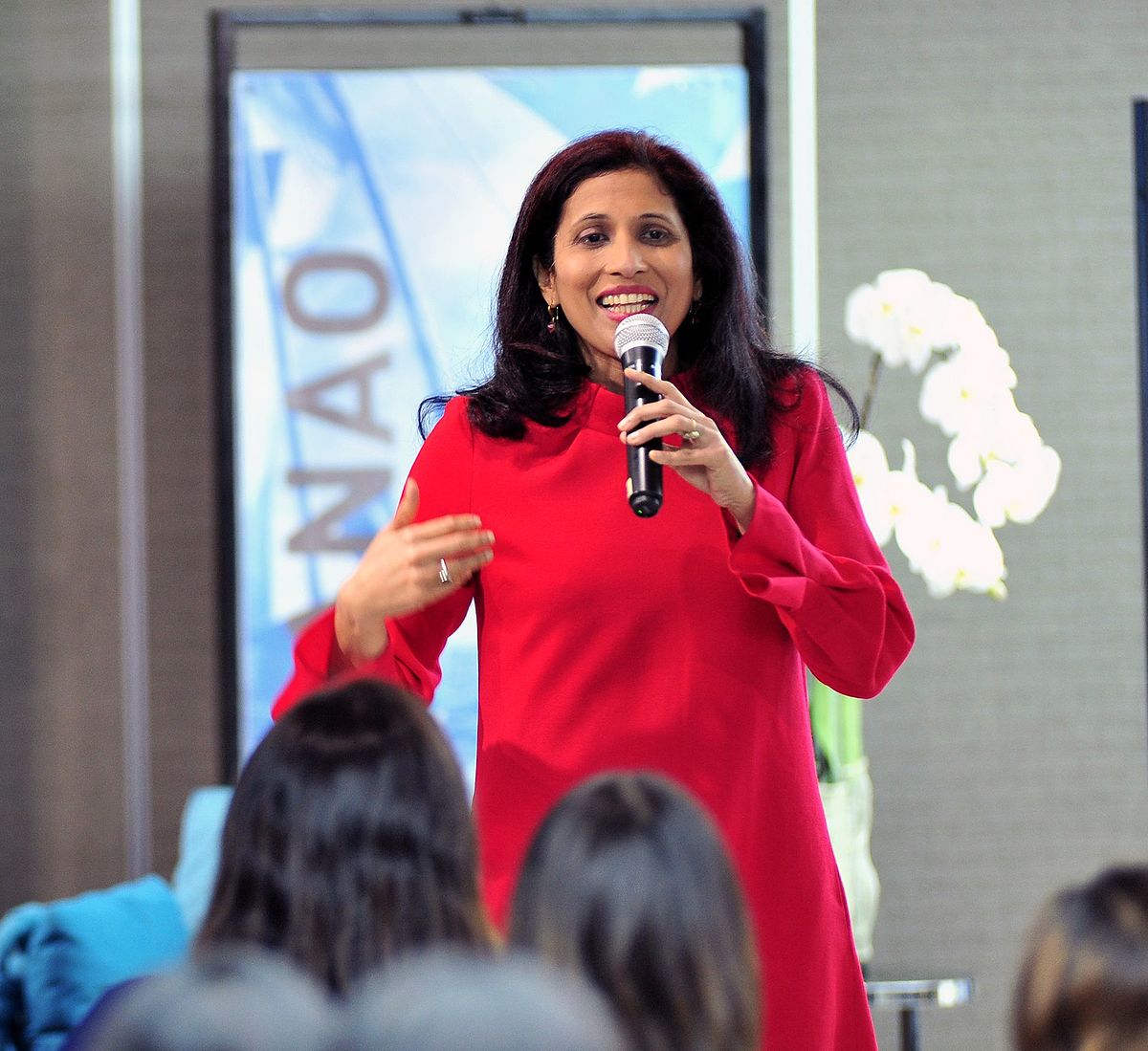
Few could have imagined that a small-town girl, born and raised in Kolhapur, Maharashtra, would go on to such a glittering career. In 1992, however, she joined Unilever as a management trainee, going on to become chief human-resources officer in 2016. She was also the first woman to be in the organisation’s management committee.
“Human capital is as important as financial capital. Putting human resources at the top table has real business benefits.” – Leena Nair
Her early days in the company were spent on the factory floor and in working nights, both largely male domains. Women were a rare sight inside the factory and more so on the night shifts. “Often when I went to the factories, there was never a loo for ladies because nobody had imagined a woman would come to their factory, and my first job would always be there to ensure that they built a toilet that I could use. Jokingly, all these loos that were built were called ‘Leena’s Loos,” said the CEO in an interview.
She’s never been one to shy away from a challenge. She has worked at HUL’s factories in Taloja (Maharashtra), Kolkata (West Bengal), and Ambattur (Tamil Nadu). She said, of the experiences, in an interview, “Put your hand up for the jobs which are tough but will give you experiences others can’t match. And always think more about how you can contribute rather than what your position or job is.”
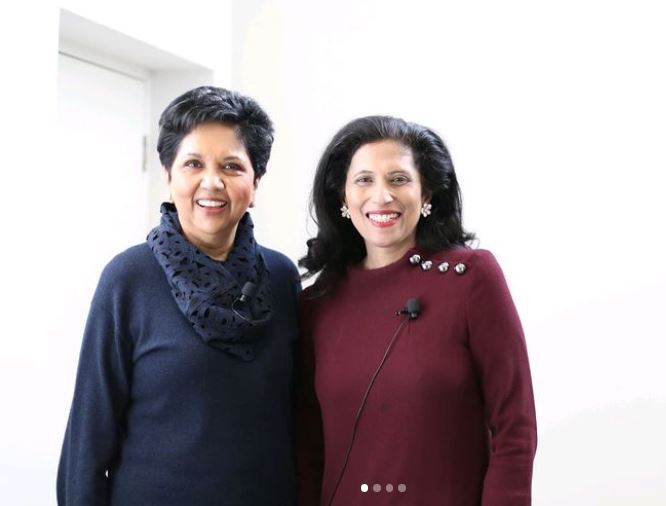
Leena Nair with Indra Nooyi, former PepsiCo CEO whom she calls friend and mentor
Objective and purpose in student days
As the name suggests, Nair’s hometown, Kolhapur, is famous for its braided and hand-crafted leather slippers, the Kolhapuri chappal. The town received the Geographical Indication designation in 2019. She was born in the city and studied in Holy Cross Convent High School, the only school for girls at that time. Hers was even the first batch to take the class X board exams. She joined The New College Kolhapur and had to ride a bicycle for 12 kms every day to attend classes.
Nair went on to study electronics and telecommunication engineering at Walchand College of Engineering, Sangli (Maharashtra) where there were just 18 girls in a student body comprising 3,000 boys pursuing their degree. Always a hardworking student, she passed out with a gold medal from XLRI – Xavier School of Management Jamshedpur (1990 – 1992) in human resource management.
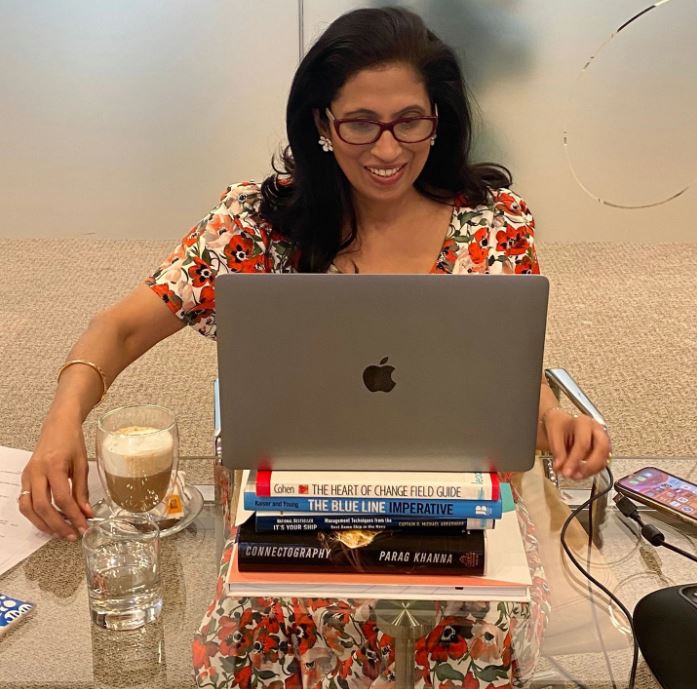
Nair grew up having lots of norms, taboos and barriers around her about what girls can do and can’t do. Her objective at that time was just to get educated. One of the lessons that she learned from life comes from there.
She told school students of her hometown in one of her visits:
“It is very important to dream big. Do not let others tell you, rather you determine how big your dreams should be. Don’t get discouraged if people doubt your abilities, because if I would have, I would have not reached where I am.”
Going by instincts
After passing out of her engineering college, while she loved the intellectual challenge of engineering, she didn’t enjoy working as an engineer. It was a professor, whom she calls her mentor, who identified her talent for dealing with people.
She told her father she had an interest in human resources, much to his disappointment. He couldn’t understand why an engineer would go into a “back-office function” like HR. But she was keen on taking it up and followed her instincts, which led Nair to her true purpose. “From day one, I felt that it totally makes sense to me,” she remarked in an interview.
The instinctive leader has had an excellent track record in managing the human capital of Unilever, which operates across multiple regulatory and labour environments spread over 190 countries. Nair is a strong believer of compassionate leadership and human-centred workplaces. While taking the challenges of her role in her stride since the early days of her career, she has become who she is now.
In her tenure of heading the diversity and inclusion agenda for the organisation, Unilever got recognised as number one FMCG graduate employer of choice in 54 countries.
Charisma all along
Her recent appointment in one of Europe’s biggest brands is a jubilant affair in India for two reasons – It is being considered as a strong step towards rise of Indian woman’s stature on a global platform. Secondly, it has added further sheen to the constellation of Indian-origin business stars who are heading multinationals around the globe.
Nair is not an elusive leader, rather an active voice on social media so much that she has been recognised as the top voice of LinkedIn in 2020. While she considers Indra Nooyi, former PepsiCo CEO her role model, she is no lesser a role-model herself and has been aptly awarded the ‘Great British Businesswoman Role Model’ award.
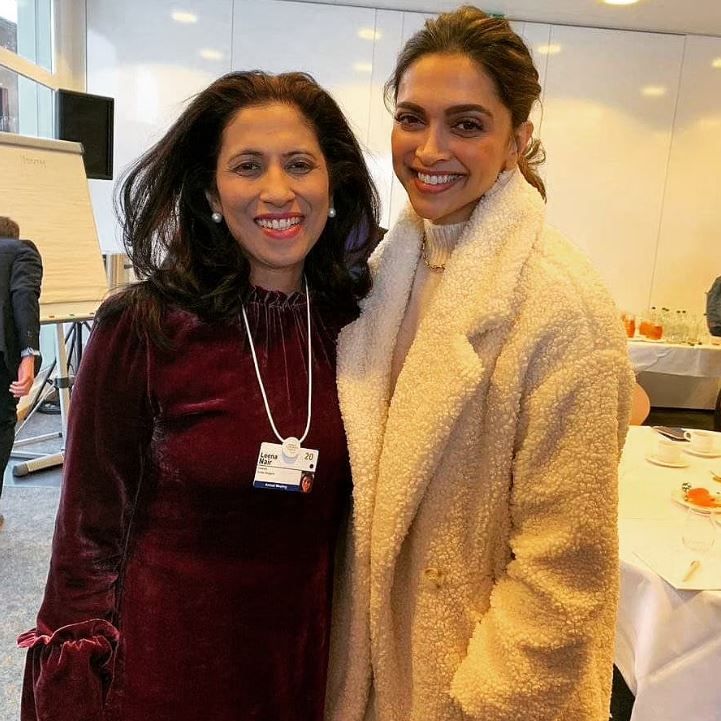
Leena Nair with Bollywood actress, Deepika Padukone
Biggest leadership lessons while being stuck in Taj on 26/11
Whenever she recounts the horrors of those nights in November 2011, Nair never fails to mention the courage shown by Mallika Jagad. The 24-year-old staff-in-charge had been tasked with taking care of the 10-member Unilever team on that fateful night of November 26. Nair recalls being trapped there with her husband and her colleagues, amidst gunshots, screams, the constant smoke and debris falling all around them.
“Nothing in her training had ever taught her what to do if terrorists started attacking,” Nair often says. Even then, the young woman had been strikingly calm and composed, constantly available to support the guests in whatever way she could. She even informed her worried mother over the phone call, saying she wasn’t inside the hotel but safe and sound elsewhere, to dissuade her from calling again.
Mallika’s fortitude in the face of extreme danger, coupled with her youth and lack of experience, left an indelible impression on Nair, opening her up to a different dimension of leadership. She loves to repeat Mallika’s words from the following morning, during the rescue operation, gentle but firm: “Guests first, staff next and me last.” In that night of horrors, Leena Nair experienced an excellent example of situational leadership shown by the staff at the Taj, and that it’s up to an individual to become a leader if one wants to, using the lesson learned as an anecdote in her elevating speeches. The global business diva, wife and mother of two was also able to realize from that night’s uncertainty that life is a gift and we should live it with focus on our purpose.
Do you know?
- Leena Nair writes a gratitude journal every night and does a 20-minute meditation practice every morning to keep her life balanced.
- Walking, running and dancing are part of her regimen as she believes that reconnecting with one’s passions is important to keep going.
- Nair loves listening to Oprah Winfrey’s podcasts because she identifies with what Oprah says about purpose.
- She tries to learn one new thing every year like how to play the keyboard or how to converse in Spanish.
- She believes in the power of mentors and just reaches out to people who inspire her. Apart from Indra Nooyi, and a couple of her college professors, Nair considers Sara Matthew, former CEO of Dun and Bradstreet, Niall FitzGerald, and John Stewart from Unilever as her mentors.
Follow Leena Nair on LinkedIn, Twitter and Instagram


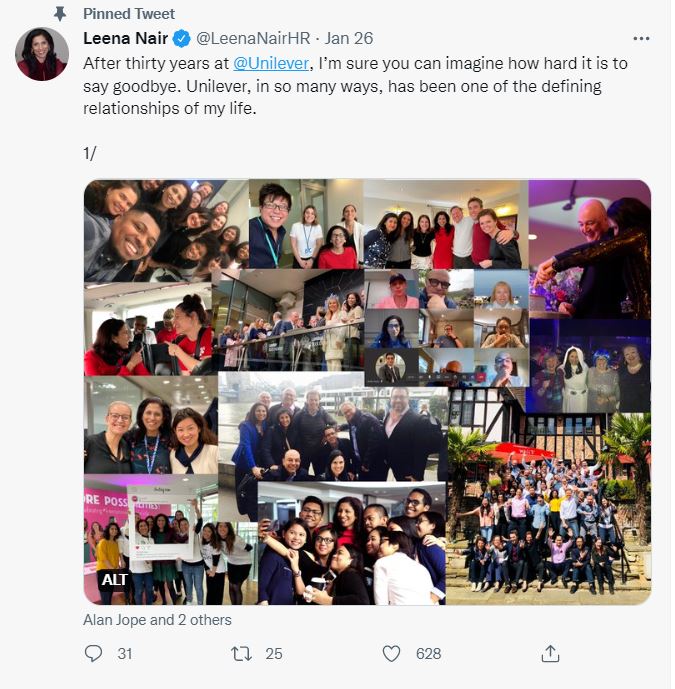

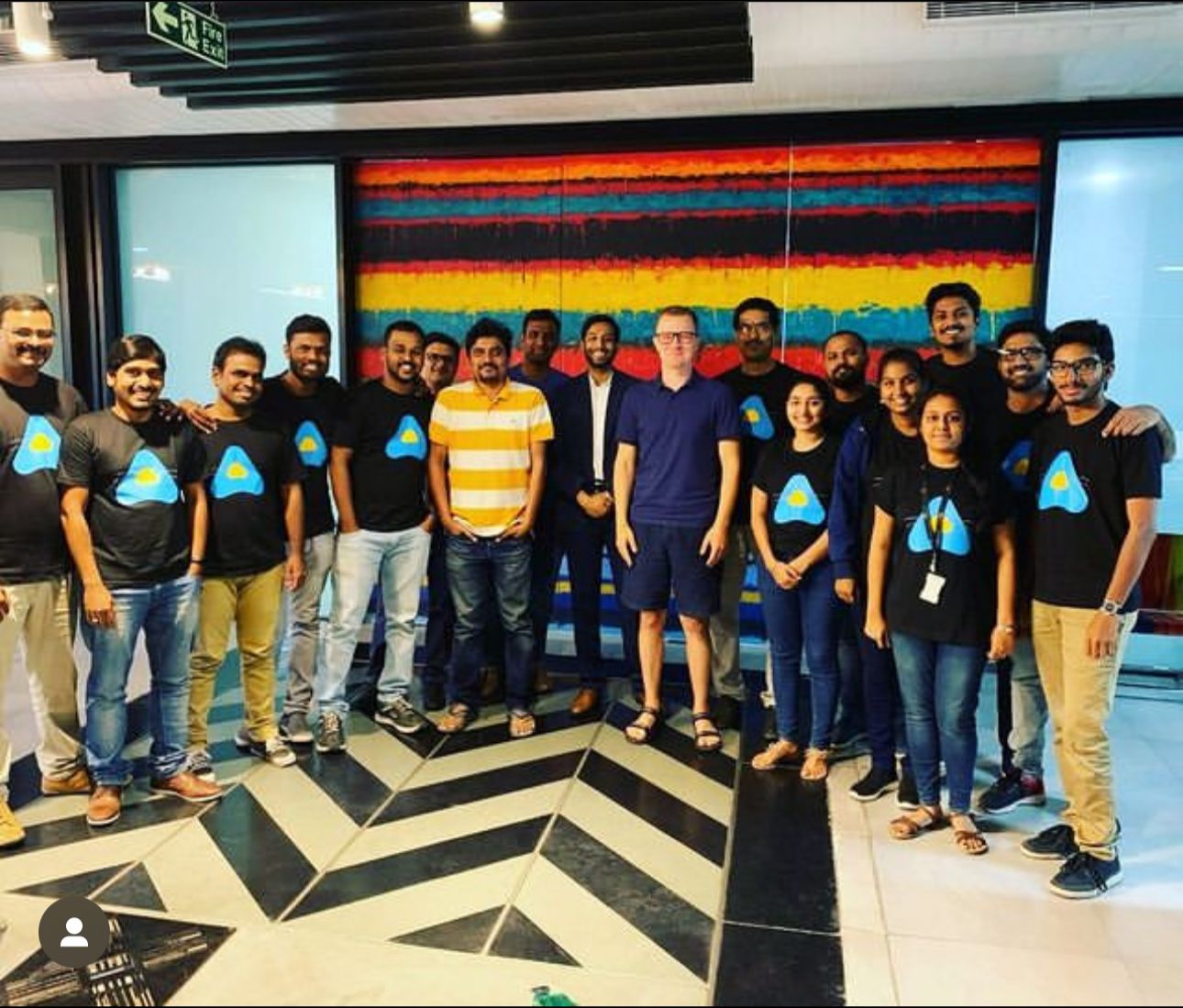
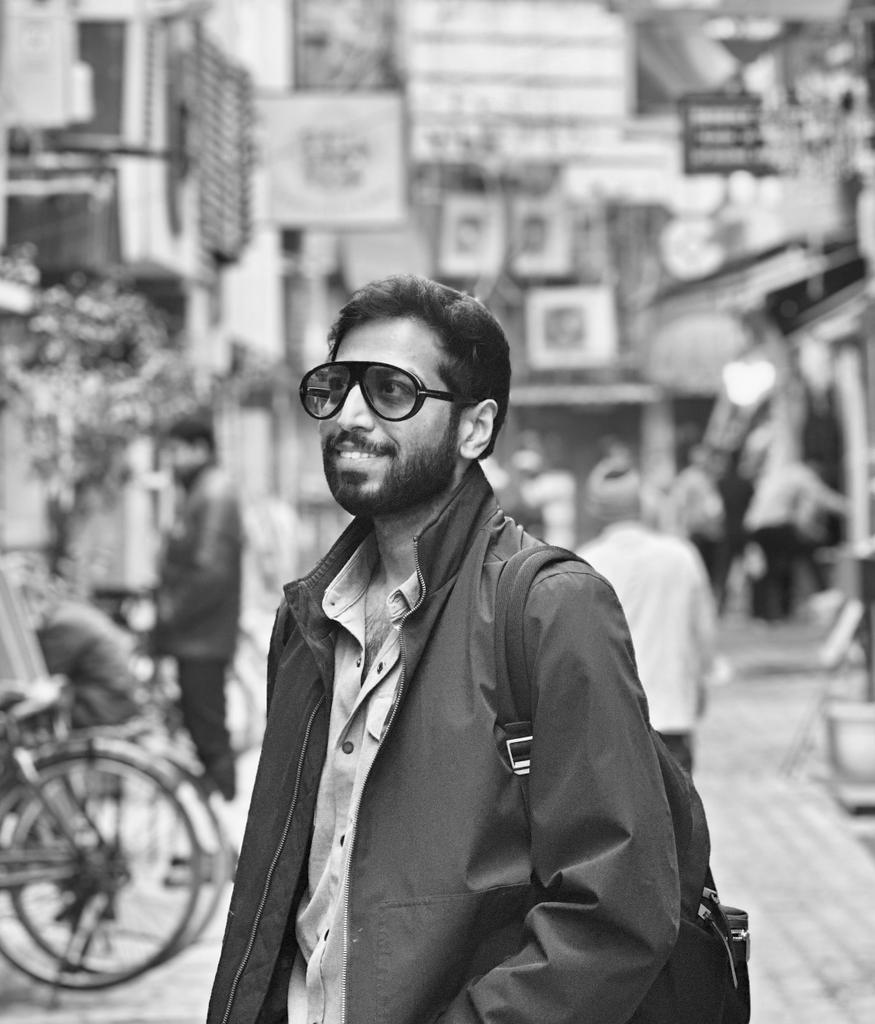
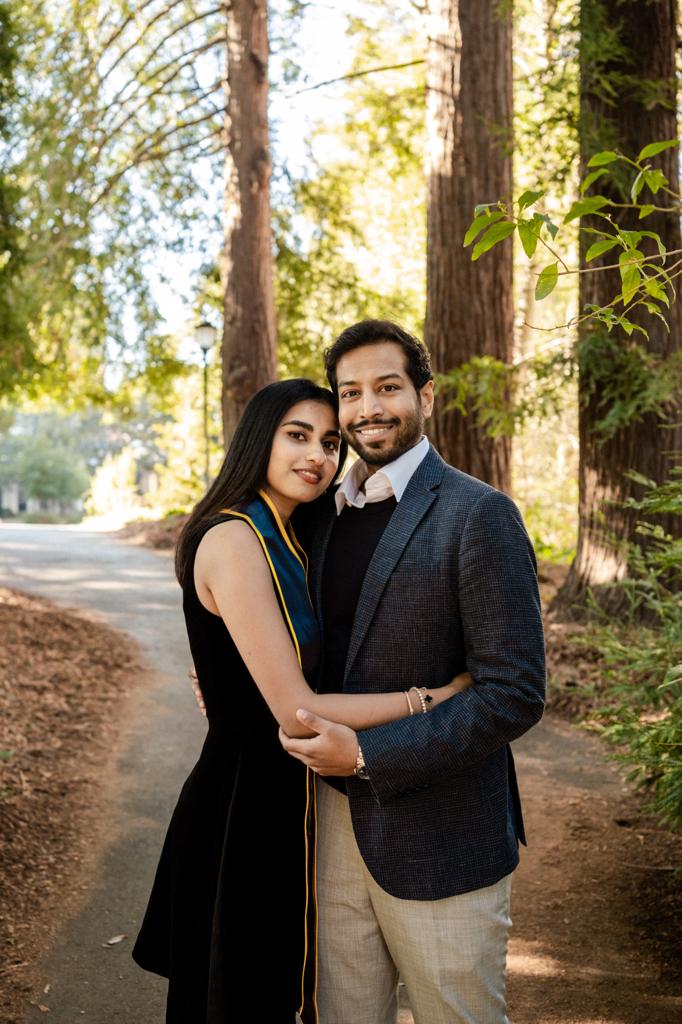
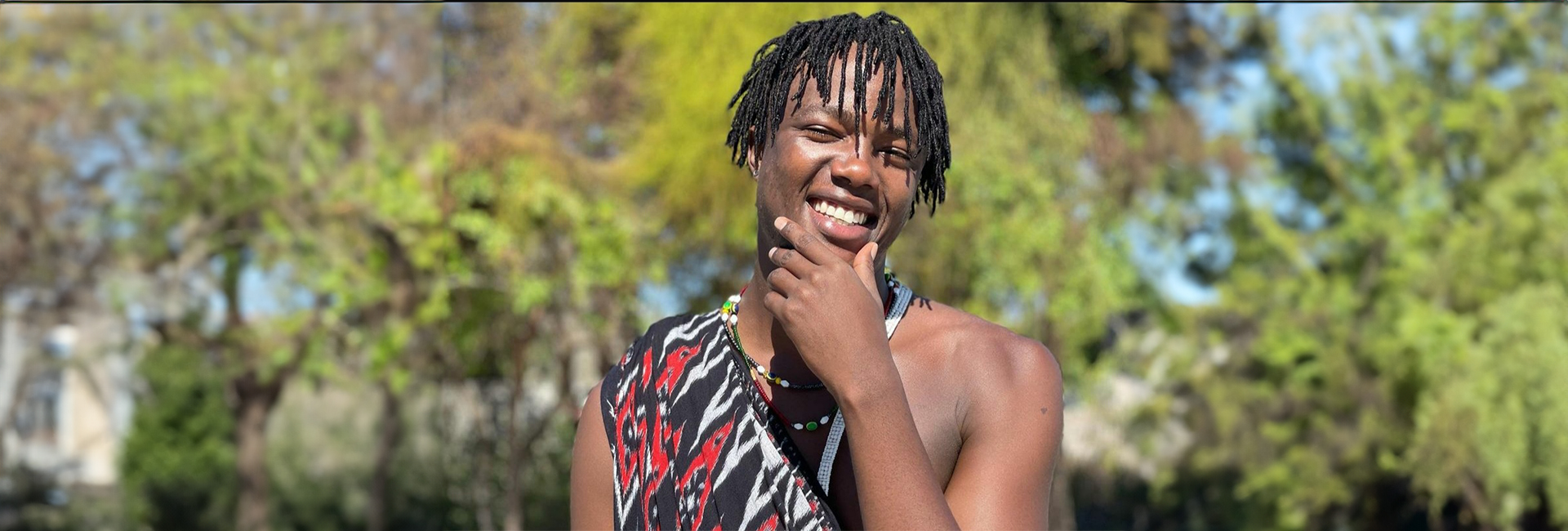
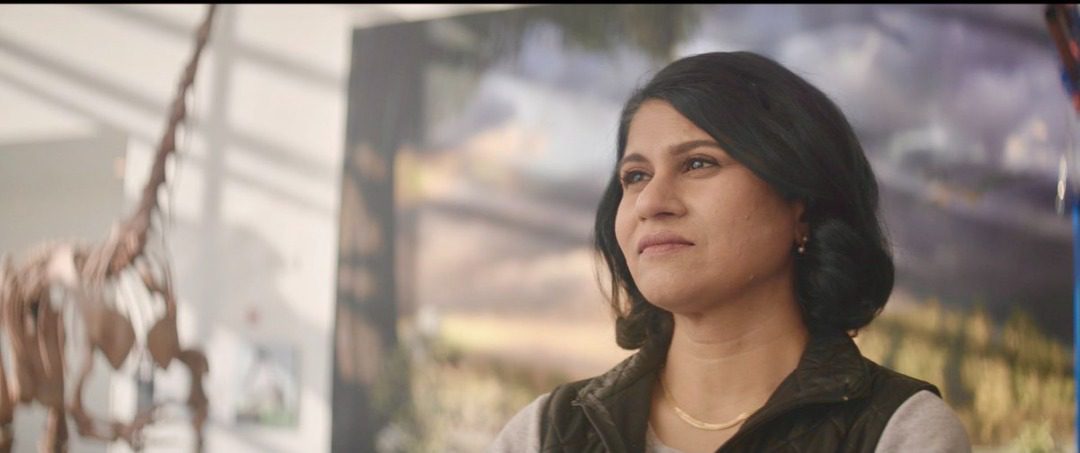
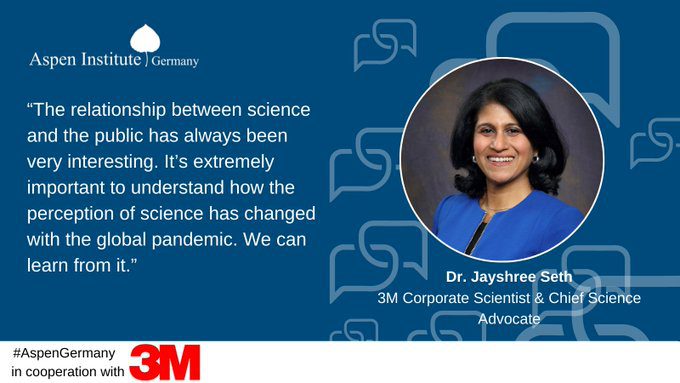
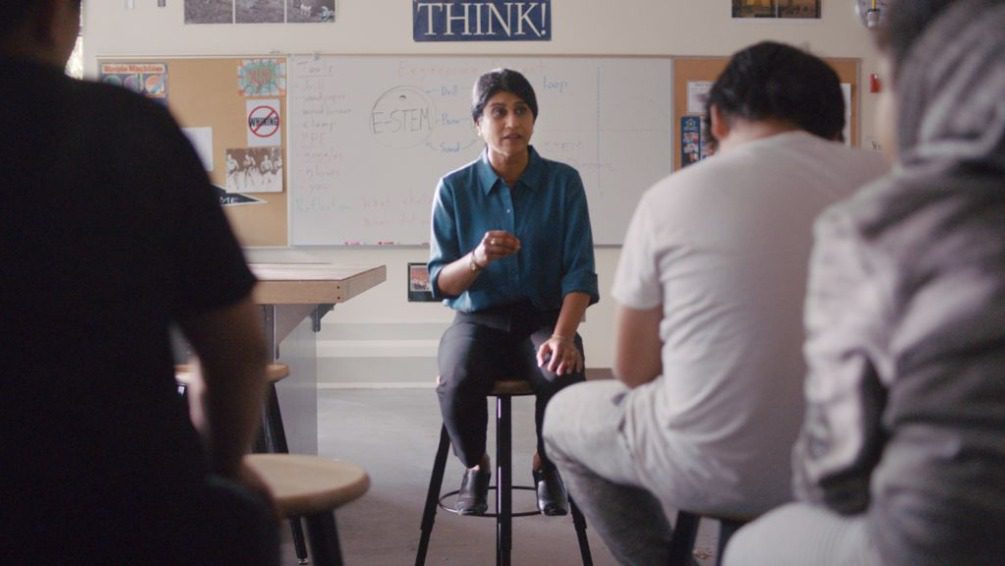 She has worked at 3M for 28 years.[/caption]
She has worked at 3M for 28 years.[/caption]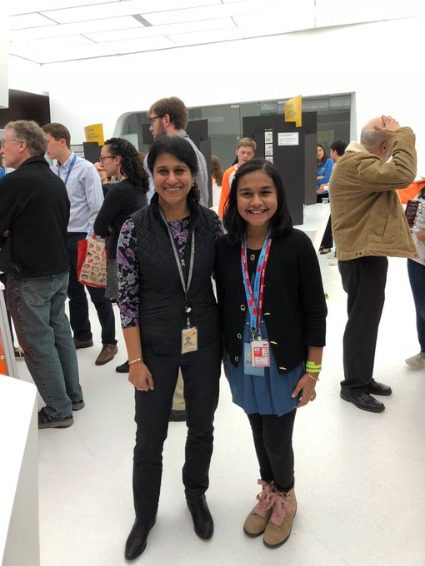 Jayshree Seth with Indian-origin teen innovator Gitanjali Rao in 2018.[/caption]
Jayshree Seth with Indian-origin teen innovator Gitanjali Rao in 2018.[/caption]
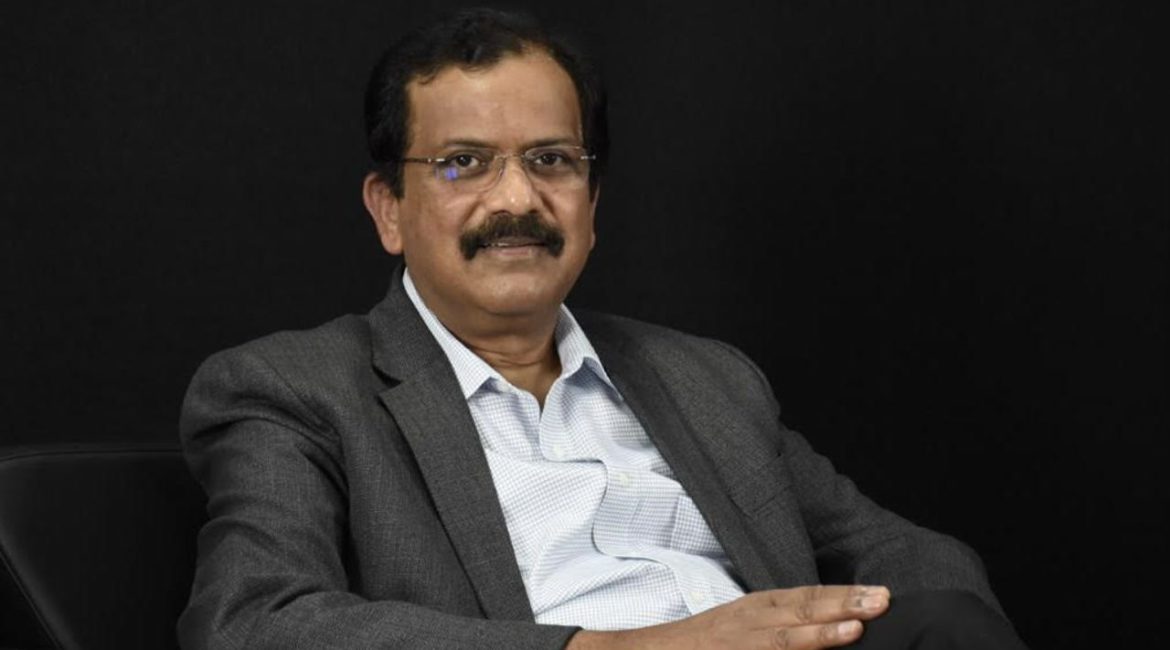 Dr GV Rao[/caption]
Dr GV Rao[/caption]